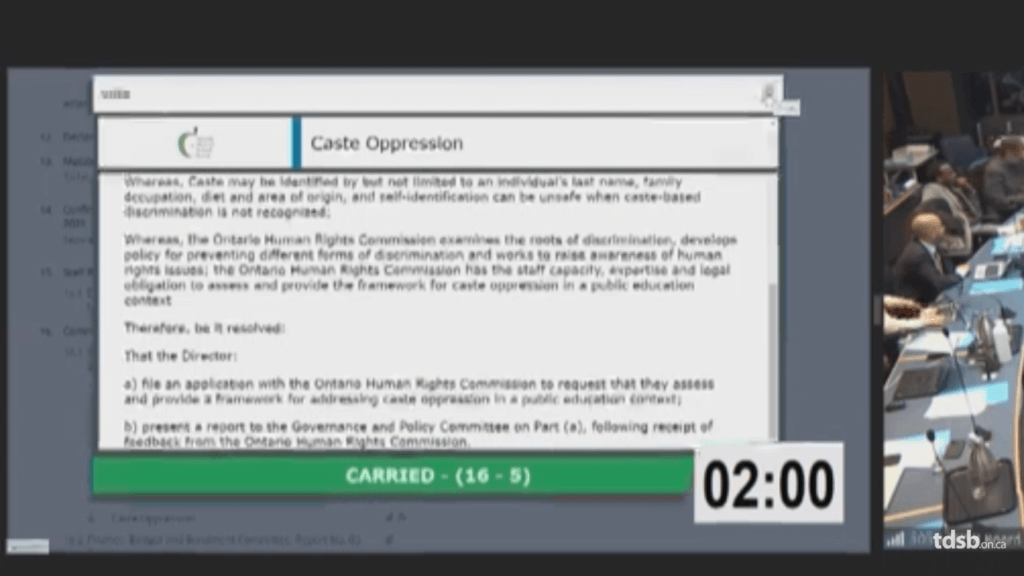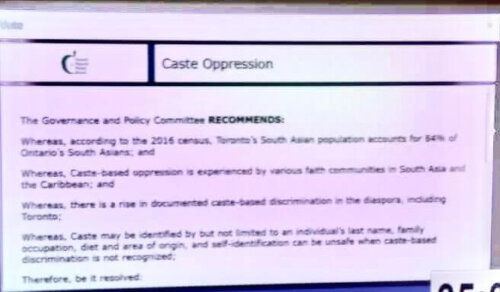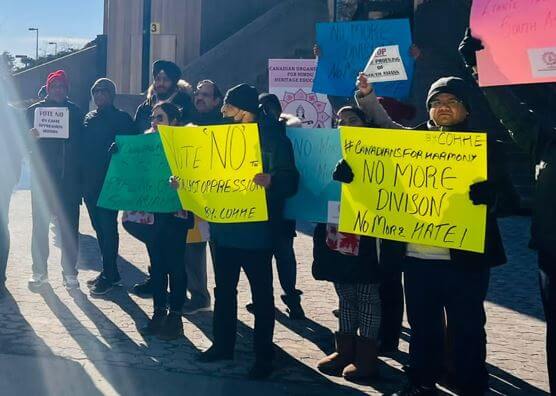15th March 2023 – Last week, the Toronto District School Board passed an amended ‘caste oppression’ motion 16-5 after a series of heavy debates both inside and outside the council.
Five dissenting trustees magnified the dissenting voices of the parents and several other community groups, especially CoHHE (Coalition of Hindu Heritage Education), who found the motion discriminatory and waste of precious available public funds.
The motion passed is a significant change from the original motion that was introduced and had aimed to form a committee consisting solely of self-appointed members to develop a curriculum to address the non-existent caste-based discrimination at TDSB.
A quick analysis of the motion raises serious questions. Let us look each one at a time.
- The motion reads, “Toronto’s South Asian population accounts for 84% of Ontario’s South Asians”. Yet, the trustees who supported the motion could not provide even a single documented evidence of caste-based discrimination at TDSB.
- It reads further, “there is a rise in documented caste-based discrimination in the diaspora”. Again, if this was indeed true, where is the evidence?
- It also reads, “Caste may be identified by not limited to an individual’s last name, family occupation, diet and area of origin and self-identification can be unsafe when caste-based discrimination is not recognized”.
Point (c) above is highly unclear, reflects the ambiguousness of the assenting trustees and deserves a pointed response.
A child never chooses the parents, so calling someone casteist on the basis of one’s last name is perfectly colonial to say the least. Moreover, who gets to decide if a last name is casteist? Do the trustees want to say that if a child has a last name as a Khan or Singh or Patel or Agarwal or whatever (these are some of common last names in South Asia), the self-appointed members will decide for the child for life and label them as casteist or not. If this gets included by Ontario Human Rights Commission for caste-based discrimination, this shall be considered as a repeat of residential schools with a small difference; the children this time will belong of South Asian and Caribbean origin. This is nothing but profiling of young ones who will bound to live their complete life with an inferiority complex.
The next point here is family occupation. Assuming a person joins her mother’s dentistry or any other occupation, how is that exactly makes that person casteist?
The next point is where the personal liberties are being encroached and is an attempt for a hit job on basic human rights of Canadians. So, the members of the caste committee at TDSB will decide what the South Asian communities must eat to not get labeled as casteist? Is this not a fascist idea to encroach someone’s personal space where someone else will decide the food choices to not get branded as casteist?
Moving on; the area of origin. This is similar to the last name argument. No one decides where they are born and hence, how is this even a criterion to decide caste-based discrimination?
Everyone here has a loud ‘yay’ to fight any discrimination based on race, ethnicity, skin color, creed, etc but to label the entire South Asian community as casteist because of the family or area they are born in or their dietary choice will frankly be milestone blunder Ontario Human Rights Commission will seek to avoid.



